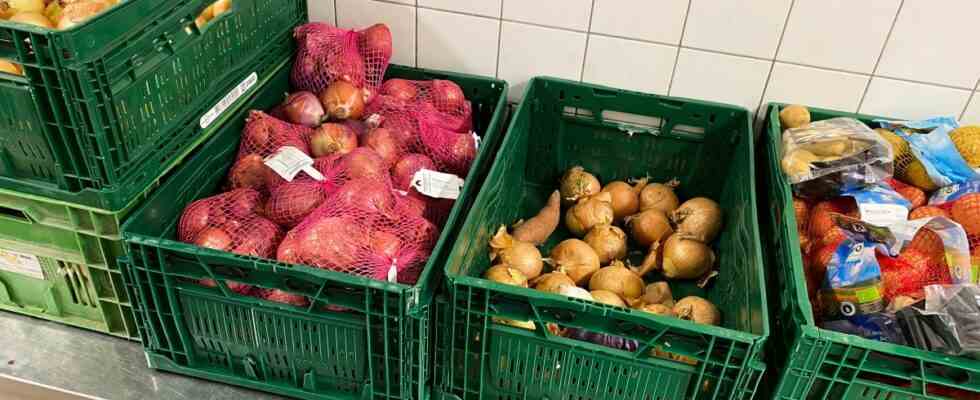Is the yogurt expired? Away with it! The banana is already brown, the apple has a bruise? Off to the garbage can, straight to the spaghetti that’s left over from dinner! Tons of food end up in the trash every day. According to the waste management company, there are 300 tons a day in Munich. In addition to waste such as nut and fruit shells or bones, this also includes leftovers. However, foodstuffs that have reached their best-before date or that no longer look as fresh but are still edible are also disposed of.
This Thursday, the city council’s committee for climate and environmental protection is dealing with the topic of food waste. The aim is to reduce the amount of food waste by half by 2030. For example, municipal canteens, restaurateurs or neighborhood initiatives could set up freely accessible refrigerators with “saved” food that is no longer suitable for sale but is still suitable for consumption.
The environmental department wants to see how these “fair dividers” could work in the districts, provided the city council gives it the go-ahead. That would then be taken over by the planned urban nutrition house, from which the nutritional transition is to be promoted. The Nutrition House – which may well be given a more catchy name – should be an address from which sustainable nutrition is promoted, be it with workshops or advice for restaurateurs and suppliers or with the networking of initiatives. The food turnaround also includes the aspect of food waste.
This has become a problem in industrialized nations. In its submission, the environmental department speaks of 1.3 billion tons of food disposed of in the garbage every year worldwide. According to an estimate by the environmental organization WWF and the supermarket chain Tesco from last year, there are even 2.5 billion. And the climate suffers as a result. Ten percent of all global greenhouse gases are due to food waste. At the same time, resources such as water, soil and energy are also lost.
In Germany, twelve million tons of food end up in the trash every year. 18 percent (2.2 million tons) is generated during processing, four percent (0.5 million tons) of food waste is generated in retail, 14 percent (1.7 million tons) is caused by out-of-home catering, i.e. about in gastronomy, 52 percent (6.1 million tons) of food waste is generated in private households.
A large part of the discarded food does not even reach the consumer. For example, many foods are not even harvested, for example due to price fluctuations on the market, as this does not pay off. Other factors that lead to food loss include failure to meet quality class requirements (e.g. unsightly fruit), overstocking, mislabelling, assortment changes and packaging redesigns that result in still edible food ending up in the bin.
In Munich there are already initiatives to save food. This includes Foodsharing eV, an initiative created in 2012 that advocates the responsible use of resources and a sustainable food system. In July 2017, the districts of Munich, Dachau, Fürstenfeldbruck and Starnberg founded the first food sharing district association called “Foodsharing Munich with adjacent districts eV”. In Munich, around 700 kilos of food are saved from the bin every day through food sharing. There is information about foodsharing-muenchen.de.
Günes Seyfarth co-founded the Foodsharing association and runs the Community Kitchen in Neuperlach.
(Photo: Alessandra Schellnegger)
The “Community Kitchen” (community-kitchen.com) in Neuperlach cooks almost exclusively with rescued food. In addition to on-site food, the Community Kitchen delivers meals to day care centers, schools and companies and sells preserves such as soups, stews, chutneys, jams and dehydrated jars through local retailers.
The Too Good To Go app, the world’s largest marketplace for surplus groceries, also has many users. The app connects customers with businesses that offer surplus groceries. In return, there is high-quality food at a reasonable price, the companies reach new customers and can generate income with their surpluses while protecting the environment at the same time.
The environmental department is currently having a record of how much food waste is produced in city canteens. By the end of 2023, the authority wants to present the results to the city council and propose measures to reduce food waste to less than ten percent (currently 35 percent).

